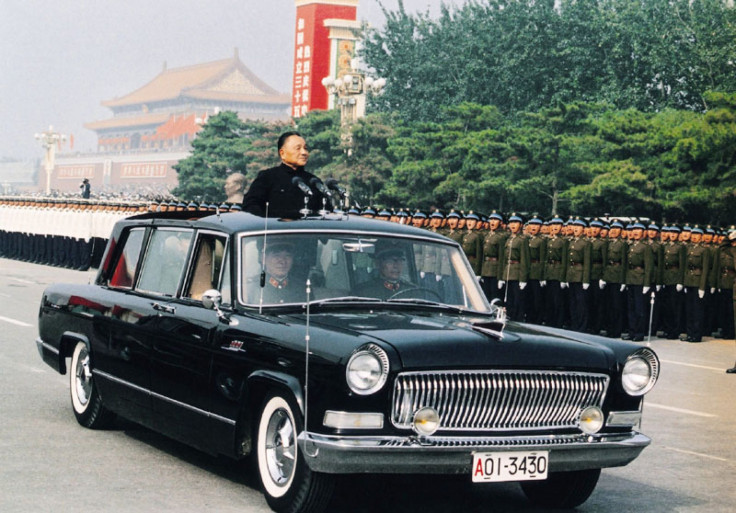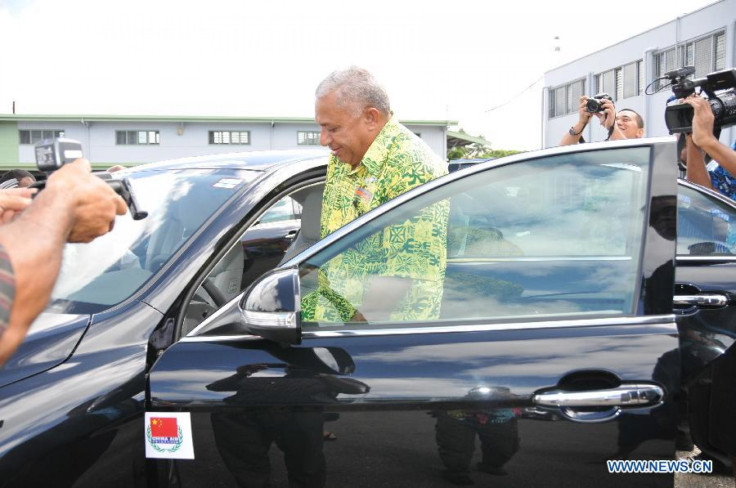China Newest Soft-Power Diplomacy: A Fleet Of Luxury Sedans Gifted To Fiji [PHOTOS]
China has used various forms of soft power as a form of diplomatic currency in the past. There was the ping pong diplomacy of the early 1970s, which paved the way for Richard Nixon’s 1972 groundbreaking trip to China. There was also panda diplomacy, which saw China give 23 pandas to nine different countries from 1958 to 1982 (two of them to Nixon after his visit.)
Now China is expanding its soft power diplomacy to luxury vehicles.

According to the Wall Street Journal, last Friday, Beijing donated 20 Chinese-designed and manufactured Hongqi, or Red Flag, vehicles to the Pacific island nation of Fiji. The fleet of sedans is estimated to have cost around $2.3 million.
Fiji Prime Minister Voreqe Bainimarama called the gift “generous” and “timely” during a ceremony in the nation’s capital, Suva. The cars, he says, will be used as soon as next week as the country prepares to host high-level politicians for the G77 group meetings for developing nations.

China’s Hongqi vehicles, made by a subsidiary of the FAW Car Company, became synonymous with Mao-era politicians after the company began production in 1958. But for a time, it lost its status as the preferred mode of transport for political dignitaries, and it was seen instead as the vehicle for middle-class businessmen. The vehicle was reintroduced to the world as a luxury sedan during the 60th anniversary of the People’s Republic of China, in 2009, when a convoy of Hongqi cars carried the country's highest officials in the parade.

Nonetheless, recent reports show that China’s officials still prefer foreign luxury cars over the domestically made Hongqi.
In 2009, state-run Xinhua News reported that government officials were being criticized after they put cars made by foreign companies BMW AG (FRA:BMW) and Mercedes-Benz, a unit of Daimler AG (FRA:DAI), on the procurement list of official vehicles. Many commenters online said the state should support Chinese-made cars, and that such foreign cars were a waste of taxpayer money.
A report by China Radio International also added that in 2009, the government was responsible for 20 percent of all sales in China by Germany's Audi AG (FRA:NSU).
Beijing News reported that Audi expected to sell more than 10,000 cars to the government that year. Hongqi’s passenger vehicles continue to have lackluster sales compared with foreign-brand luxury vehicles. In 2009, monthly sales for Hongqi peaked at 200 units in June.
© Copyright IBTimes 2025. All rights reserved.






















